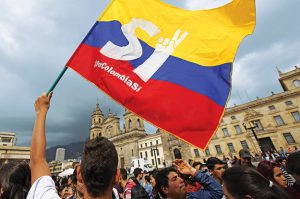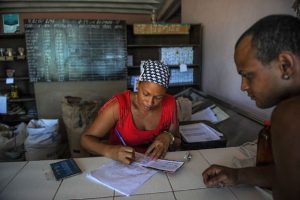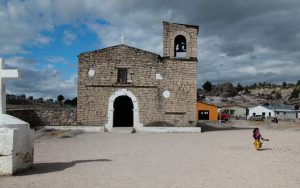
Four Reasons for Brazil’s Credit Dysfunction – and How to Fix It
Brazil’s sky-high cost of credit hurts the economy; lowering it could be an important step in boosting growth and jobs.

Brazil’s sky-high cost of credit hurts the economy; lowering it could be an important step in boosting growth and jobs.

AQ spoke to a debt expert on what a default means for Venezuela and the world.

After two years of restored diplomatic ties, new U.S. regulations on Cuba are bringing back a thicket of travel, financial and trade restrictions – and a tougher stance toward the island. The goal of these restrictions, according to U.S. President Donald Trump, is to starve the Cuban government of money from travel, remittances and commercial … Read more

Developing rural areas will be hard – and expensive. How will Colombia pay for it?

When Raúl Castro steps down as Cuba’s president in February 2018, he will hand off to his successor the unfinished task of reforming the economy. It is Cuba’s most urgent need and, at the same time, an increasingly controversial one. Castro succeeded his brother Fidel as president in 2008 amid serious structural economic problems on … Read more

Scandals and corruption investigations unfolding in Latin America have given development banks a terrible reputation: They stand accused of feeding crony capitalism, transferring resources from taxpayers to undeserving billionaires, and making lending decisions that misallocate capital at the whims of bureaucratic planners who do not necessarily know best. Should we just close them, implode their buildings … Read more

Just two weeks ago, corruption allegations involving Brazil’s President Michel Temer tipped the economy into turbulence: the stock market plummeted, the Brazilian real fell sharply, and headlines of the country descending into political and financial panic were everywhere. Again. By June 1, however, the economy had found an eerie calm. The Bovespa, Brazil’s stock market, … Read more

While tweets and speeches may continue to cause consternation in Mexico and Canada, the existential threat to NAFTA seems to have passed. President Donald Trump is now talking about giving “renegotiation a good, strong shot” rather than rescinding the free trade agreement entirely. On the docket will be intellectual property, labor rights, e-commerce, rules of … Read more

It’s fair that Mexican officials would fret over U.S. President Donald Trump’s threats to walk away from the North American Free Trade Agreement (NAFTA) – 80 percent of Mexican goods are currently exported to the U.S., and any change to the 23-year-old deal will surely be economically and politically disruptive. But other potential changes in … Read more

Book a low-season ticket for El Chepe, the passenger train that cuts through the valleys and mountains of Chihuahua, Mexico’s largest state, and it’s likely you’ll have your pick of seats. Despite taking passengers to or through some of Mexico’s most fascinating towns and natural attractions, El Chepe is nearly empty most of the year, … Read more

Businesses and entrepreneurs in Venezuela are responding to the country’s crippling economic crisis in all sorts of ways. Many are simply closing their doors – not surprising in a country whose GDP shrank by at least 10 percent last year. But others have reinvented themselves to survive in the country’s off-kilter economy, as new … Read more

Much is made of the perils of ending NAFTA for Mexico, and rightly so. The 23-year-old agreement has helped the nation not only boost trade but also transform its economy, moving from a commodity to an advanced manufacturing exporter. With 80 percent of its exports headed north, even the threat of change has hurt Mexico’s … Read more

Brazil’s current political instability began four years ago, with a wave of street demonstrations that virtually no one predicted – and eventually drew more than 1 million people into the streets. In this special report, AQ’s editor-in-chief looks back at what really caused the protests – and whether today’s politicians have fully learned their lessons. … Read more

The inaugural meeting of Puerto Rico’s fiscal control board lasted just 26 minutes. The seven unelected technocrats deputized in September with overseeing nearly every facet of the island’s economy met in a boardroom a few blocks from Wall Street to select a chairman and decide which of Puerto Rico’s institutions would come under their watch. Their … Read more

Nearly four years after Argentina became the first country to be censured by the International Monetary Fund (IMF) for providing inaccurate data on inflation and economic growth, the international body on Nov. 9 restored the country to good standing. The move provided a win for the government’s reform agenda and offered a positive sign for hesitant … Read more